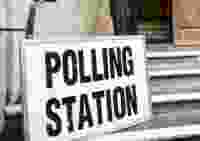
The First Week of Many
Campaigning for the 2019 General Election is underway so Patrick Maxwell is here to provide you with analysis of the first week.
Calling a December election was always going to be a considerable risk. Perhaps riskier than Theresa May's forlorn hopes in 2017. However, this time around, Boris is relying on the backing of new swathes of traditional Labour voters.
There is a gargantuan conundrum facing both voters and party leaders… Which is, their top priorities. What comes first in one's mind, Brexit, or party allegiance? Are you Leave or Remain, or do you simply want more funding in the NHS, policing and education? Johnson is staking his odds on the basis that for many, three years of trying to leave without success will persuade voters to support the one major party that pledges to 'Get Brexit Done' as soon as possible, as opposed to Labour's dithering and delay.
Corbyn's failure to create a Brexit policy that is understood by not only his Shadow Cabinet but the general public has meant they've decided to dance around the issue.
His party is determined to avoid the matter; and Johnson is hoping that traditional Labour voters, who are disenfranchised with Corbyn's brand of anti-Semitism and links with anti-British forces, will come over to the Tories for perhaps the first time.
Johnson's other target voter is the middle-class, Tory-inclined moderate voter who is 'bored' of Brexit. Affluent, but perhaps not aspirational, this group was heavily targeted by the Vote Leave campaign and is often characterised to consist of Daily Mail readers and Waitrose shoppers.
Middle England, as depicted by Jonathan Coe in his excellent book of the same name, is a place fantasised about, and yet never exactly described or situated. In this election, it is this group of voters who are being most keenly contested.
This vote has been predicted to be the most unpredictable. The new force of the Brexit Party could follow in the footsteps of many of its Tory Brexiteers forebears in destroying their own cause in the search for their No-Deal dream. Nigel Farage could take from Johnson those Labour voters he so desires and split the Leave-vote to such an extent that a united Remain side can come through in divided constituencies.
The chances of there being a united Remain side are, of course, equally slim, given Labour's opposition to cross-party cooperation. Nevertheless, Johnson's tactics are put at risk by Farage and his particularly eclectic band of followers. Claire Fox, who attempted to cover up the genocide of Bosnian Muslims, defend the IRA, and was a former member of the Revolutionary Communist Party, is hailed as their bastion of diversity. Wherever Farage goes, he brings with him a clique of figures who have spent their political lives on the fringes of informed debate.
The rise of 'journalicians' in power – Seumas Milne, Johnson or Fox herself – has meant that the gap between politicians and the media, between a good story and the search for suitable solutions, has been broken. It is a frightening thing to see that it is these people who will yield the most power in this election.
On the other side of the debate, it is the Liberal Democrats who are the primary voice for Remain. Labour's Remainers who have either stuck to the line for their political careers stand a high chance of being defeated in the North and Midlands by Johnson's promise to end the delay they have promoted. In a way, the Lib Dems could be reluctant to see an election at this moment. At this rate, they can wait for every disenfranchised MP to defect until they get a majority.
Jo Swinson's explicit message to Stop Brexit has caused some discord in the party. It could polarise moderate Tories upset by Johnson's boisterous rhetoric, the many in liberal England despairing at the extremes in the Brexit debate. Although they still support a confirmatory referendum, they promise to revoke Article 50 in the hypothetical situation of them being elected to No10, which could be a dangerous strategy, although eye-catching in the eternal air-war of an election campaign.
Swinson will also have to show that her party is not just about Remaining and keeping to the status quo. Liberalism has many strands. Both major parties are promising for significant state intrusion into public life. The investment into public services will need to be voiced louder if they are to convince voters that the Lib Dems do not just stand as a party of protest.
The roles of Seumas Milne and Dominic Cummings – who both want to change the British state beyond recognition radically – will be vital to the outcome on December 12. Milne wants to focus Labour's campaign on' Tory austerity' which so far is giving Jeremy Corbyn a small increase in his poll ratings. Cummings will want to command the latter stages, convincing voters of the threat that Corbynism poses and how Johnson is the real visionary for Britain. Milne will be hoping that previous party allegiance will win over Brexit opinion; Cummings hopes for the opposite.
The first week of this campaign has seen the more predictable gambits – Johnson staying slightly quiet while Labour pours out rhetoric about the threat to the NHS posed by privatisation, and Johnson's terminal lack of credibility. Soon, the Tories' messages on Corbyn's plans for the economy, and the mantra of getting Brexit over with will come to the fore. It remains to be seen how the most divisive election will play out, with the most disruptive of politicians.













